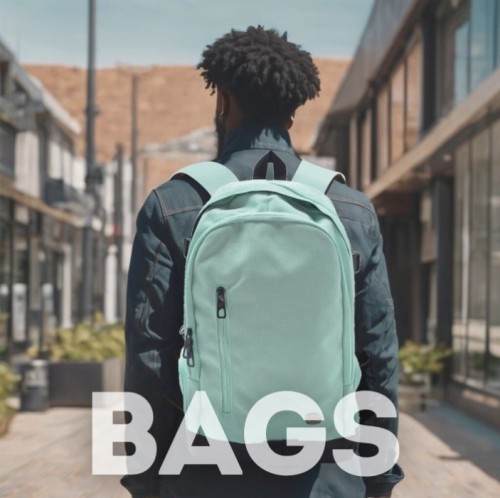Most Popular
 Sleeping Bags Your Cozy Companion for Kenyan Camping Adventures
Sleeping Bags Your Cozy Companion for Kenyan Camping Adventures
When it comes to camping in Kenya's diverse landscapes, from ...
 Best Newborn Carrier: A Comprehensive Guide for Parents in Kenya
Best Newborn Carrier: A Comprehensive Guide for Parents in Kenya
Welcoming a newborn into the family is a joyous occasion ...
 Corporate Wear in Kenya The Ultimate Guide to Professional Attire
Corporate Wear in Kenya The Ultimate Guide to Professional Attire
In Kenya’s dynamic business landscape, making a strong first impression ...



Sleeping Bags Your Cozy Companion for Kenyan Camping Adventures

When it comes to camping in Kenya's diverse landscapes, from the rolling savannas of the Maasai Mara to the lush forests of Mount Kenya, having the right sleeping bag can make or break your outdoor experience. A good sleeping bag isn't just about comfort; it's about safety, warmth, and ensuring you're well-rested for your daytime adventures. Let's explore the world of sleeping bags for camping and how to choose the perfect one for your Kenyan camping trips.
- Understanding Temperature Ratings
One of the most crucial factors in selecting a sleeping bag for Kenyan camping is understanding temperature ratings. While Kenya is known for its warm climate, nighttime temperatures can drop significantly, especially in higher altitudes or during the cooler months.
Most sleeping bags come with a temperature rating that indicates the lowest temperature at which an average sleeper will remain comfortable. For Kenya, a three-season sleeping bag with a temperature rating of around 30°F (-1°C) to 50°F (10°C) should suffice for most camping situations. However, if you're planning to camp in the highlands or during the coldest months (June to August), you might want to opt for a bag rated for lower temperatures.
Remember, these ratings are just guidelines. Your personal comfort level, sleeping clothes, and the use of a sleeping pad will all affect how warm you feel.
- Choosing the Right Insulation
When it comes to insulation, sleeping bags generally fall into two categories: down and synthetic. Each has its pros and cons, especially in the context of Kenyan camping.
Down insulation:
- Excellent warmth-to-weight ratio
- Highly compressible
- Durable if well-maintained
- Performs poorly when wet
- More expensive
Synthetic insulation:
- Retains insulating properties when wet
- Dries quickly
- Generally less expensive
- Heavier and bulkier than down
- Less durable in the long run
For Kenya's varied climate, synthetic bags might be the safer choice, especially if you're camping near water sources or during the rainy seasons. However, if weight and packability are your primary concerns, and you're confident you can keep your bag dry, a down sleeping bag could be an excellent investment.
- Shape and Size Considerations
Sleeping bags come in various shapes and sizes, each suited to different camping styles and personal preferences. The main shapes you'll encounter are:
Mummy bags: These are tapered at the feet and snug around the body, maximizing warmth and minimizing weight. They're ideal for backpacking trips in Kenya's more remote areas.
Rectangular bags: Offering more room to move, these bags are comfortable but less thermally efficient. They're great for car camping or if you tend to feel claustrophobic in mummy bags.
Semi-rectangular bags: A compromise between mummy and rectangular bags, offering a balance of warmth and space.
When choosing a size, consider your height and build. A bag that's too short will be uncomfortable, while one that's too long will have excess space to heat, reducing its efficiency.
- Additional Features to Look For
While the basics of insulation, temperature rating, and shape are crucial, there are several other features that can enhance your camping experience in Kenya:
- Hood: A well-designed hood can significantly improve heat retention, especially in cooler conditions.
- Draft collar: This feature helps prevent warm air from escaping when you move.
- Draft tubes: These insulated flaps along the zipper prevent cold air from seeping in.
- Pocket: A small internal pocket can be handy for keeping essentials like a headlamp or phone close at hand.
- Shell material: Look for durable, water-resistant outer fabrics to protect against moisture and wear.
- Caring for Your Sleeping Bag in Kenya's Climate
Proper care can significantly extend the life of your sleeping bag and ensure it performs well trip after trip. Here are some tips specific to camping in Kenya:
- Air out your bag daily to prevent moisture buildup, especially in humid conditions.
- Use a sleeping bag liner to keep your bag clean and add an extra layer of warmth if needed.
- Store your bag uncompressed when not in use to maintain its loft and insulating properties.
- If your bag gets wet, dry it thoroughly in the sun before storing.
- For down bags, consider using a waterproofing treatment to improve their performance in damp conditions.
Choosing the right sleeping bag is an investment in comfort and safety for your Kenyan camping adventures. Whether you're watching the sunset over the Chalbi Desert or listening to the sounds of wildlife in Tsavo National Park, a good night's sleep will ensure you're ready for whatever adventures the next day brings.
At Kings Collection, we understand the importance of quality gear for outdoor enthusiasts exploring Kenya's natural wonders. Our curated selection of sleeping bags caters to various camping styles and preferences, ensuring that every adventurer finds their perfect match. From ultralight options for trekking Mount Kenya to cozy, spacious bags for family safaris, Kings Collection has you covered. Our knowledgeable staff can help you navigate the options and choose a sleeping bag that will become your trusted companion on countless Kenyan camping trips. Visit us to explore our range and take the first step towards more comfortable, memorable outdoor experiences in the breathtaking landscapes of Kenya.